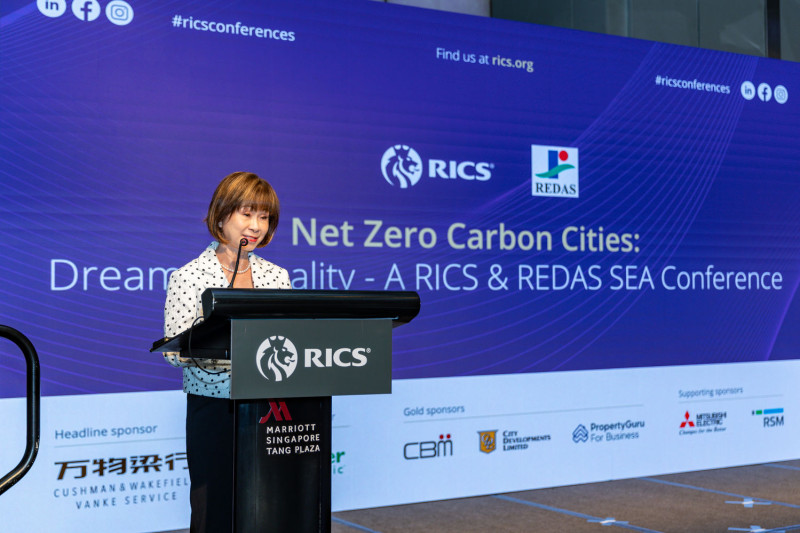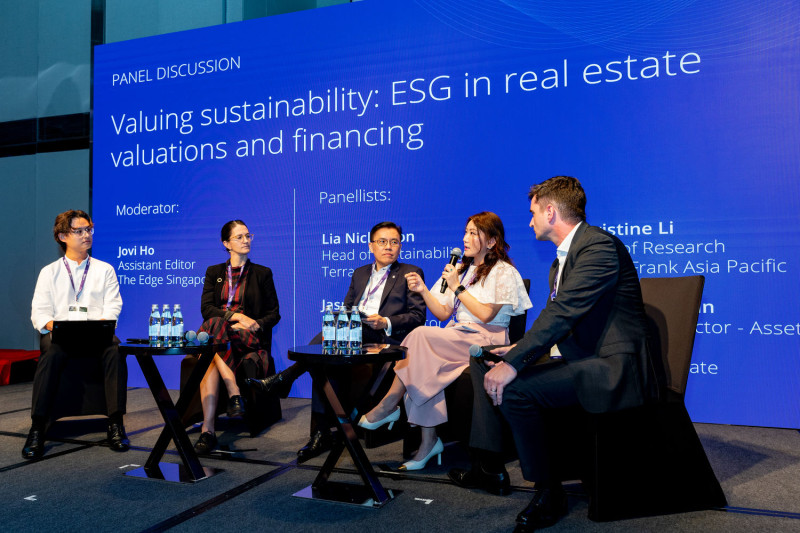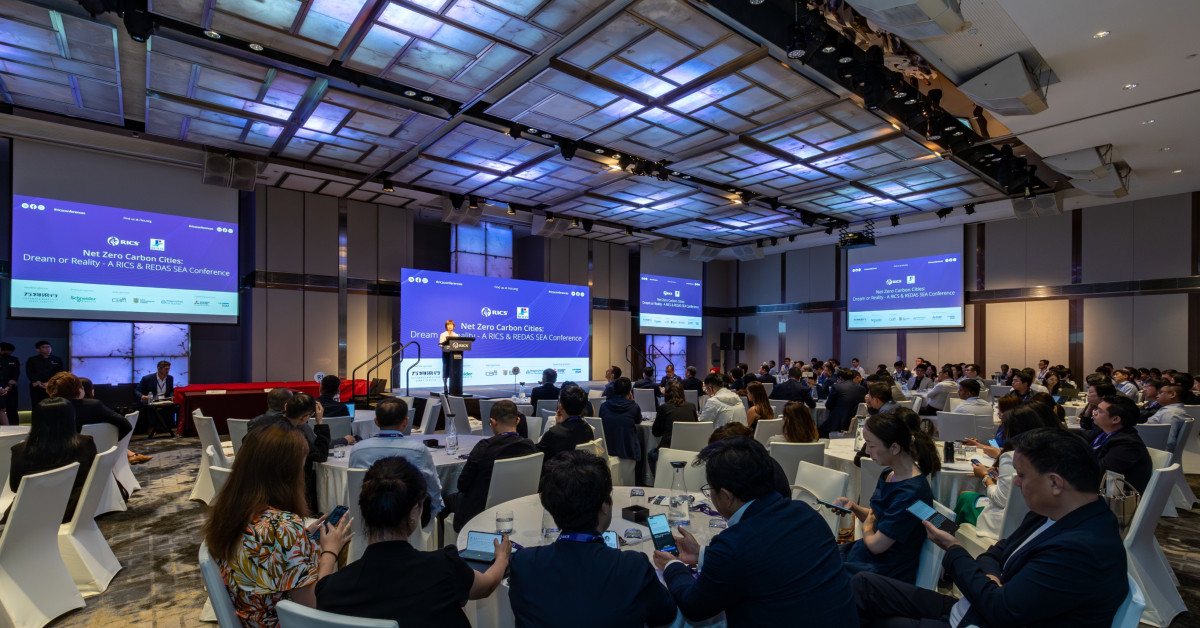ESG implementation, green premiums among topics at RICS-REDAS conference
SINGAPORE (EDGEPROP) - At a recent industry seminar on Oct 23, Amy Khor, Senior Minister of State for the Ministry of Sustainability and Environment, reiterated that businesses must incorporate environmental, social and governance (ESG) considerations into business practices to remain competitive.
“While this often entails significant investments in terms of innovation and capital, implementing sustainability can improve businesses’ bottom line and reduce costs in the long term,” she says.

The guest of honour, Senior Minister of State for the Ministry of Sustainability and Environment Amy Khor (Photo: Samuel Isaac Chua/EdgeProp Singapore)
Her sentiments were echoed by Real Estate Developers’ Association of Singapore (Redas) president Tan Swee Yiow. “Investing in green buildings, clean energy, and sustainable transport systems not only reduces emissions but also creates jobs, drives economic growth, and improves the quality of life for all,” he says.
Read also: LTA announces AI chatbot, streamlined road approval processes for developers
Advertisement
Advertisement
Both individuals were speaking at the seventh iteration of the annual Southeast Asia conference by the Royal Institution of Chartered Surveyors (Rics) and Redas on Oct 23.
Minister Khor added that the government continues to prioritise innovation and collaboration to reshape the country’s energy supply, as it overcomes its limitations as a small nation and being disadvantaged in alternative energy.
The event also featured a panel discussion about sustainability in real estate valuations and financing that was moderated by Jovi Ho, assistant editor at The Edge Singapore.
Green premiums among commercial building valuations are more present and prevalent compared to four years ago, says Christine Li, head of research at Knight Frank Asia Pacific.
She adds that this is especially evident in "transparent markets" like Singapore and Hong Kong. “Landlords in these markets have access to tenant data and can measure the premiums that their tenants or investors are likely to pay over the course of the tenancy. This has resulted in a small green premium around the range of 5% to 15%,” she says.
However, conventional demand and supply forces still have a significant impact on price than an asset's sustainability features, she says. For example, the vacancy rate in commercial real estate in Taipei is "less than 1%, which means green buildings do not enjoy as much of an advantage over regular buildings, says Li.
Read also: S‘pore will ‘act decisively’ on more housing curbs if needed: MND
Advertisement
Advertisement
On the other hand, fellow panellist Ross McQuillan, associate director of asset management at M&G Real Estate, says it can be difficult to isolate and quantify green premiums from other factors, such as the general quality of an asset. “In most markets, a Grade-A office building would have excellent sustainability credentials. Sustainability nowadays really goes hand-in-hand with quality,” he notes.

(From left to right) Jovi Ho, assistant editor at The Edge Singapore, moderated a panel discussion featuring Lia Nicholson, head of sustainability at Terrascope; Jasper Wong, managing director and head of real estate & hospitality and construction & infrastructure at United Overseas Bank; Christine Li, head of research at Knight Frank Asia Pacific; Ross McQuillan, associate director - asset management at M&G Real Estate (Photo: Samuel Isaac Chua/EdgeProp Singapore)
The panel also touched on the role of artificial intelligence in estimating emissions, and green financing as an incentive for companies to implement sustainability features in their buildings.
A memorandum of understanding (MOU) between Rics and the Architectural Society of Shanghai China was also signed at the event. The MOU will see both organisations collaborate on multiple initiatives in 2025, such as developing industry standards, developing local industry case studies, exclusive dialogue sessions and learning journeys focusing on carbon in city generations.


